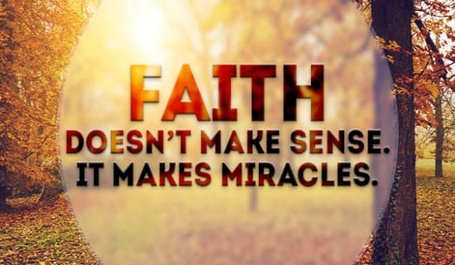MondayReflection
15th May 2023
Sharon Dirckx, Christian apologist, says
'The Christian faith helps us to make sense of horrendous evil,
because it teaches that there is something wrong with the world'

We're all called to give an
answer for the hope we have.
We're all giving answers all the time, as we can, responding to
people's questions.
The relationship between mind and soul varies, depending on the
theologian or philosopher.
Some would say that they are simply different ways of referring to the self;
others would say that "soul" is the umbrella word under which
everything else sits, and that mind is a property of the soul.
Scripture remind us that we're integrated physical and spiritual beings.
For every religious experience, there are corresponding networks in the brain.
But that doesn't mean the brain activity is the experience:
these are two very different things.
Neither does it mean that the genuineness of the experience, or the existence of God,
is called into question - in the same way that discovering brain networks associated with
romantic love doesn't undermine the experience of being in love.
The brain mediates consciousness and our engagement in spiritual practices
because we're holistic beings, not robotic machines or immortal floating souls.
My book 'Broken Planet' gives first-hand accounts of events like earthquakes,
tsunami, hurricanes, and wildfires.
These stories are woven in with questions like
"If God is real, why are there natural disasters, and why
do so many people suffer and die in natural disasters?"
Every time a tragedy strikes, we are reminded that intellectual answers alone
are not enough.
People's lives are torn apart, and any response given needs to be relevant and
liveable in daily life.
For 'Broken Planet', I heard from those who share stories of how Jesus
has brought them through immense tragedy.
People's stories most inspire me:
how they have tackled adversity and somehow still walk with Jesus through it all
The bottom line is that we live in a world in which good and evil are at play.
I keep coming back to the book of Job.
His suffering is unfathomable from his own vantage point, and yet, as the reader,
we glimpse a bigger perspective of the ongoing cosmic battle between God and Satan.
Every generation has its terrible evils.
Wars and the Holocaust bring this clearly into focus.
These are a reminder that evil is very real - but how do we make sense of our reaction
to atrocities that people commit, if God does not exist, and we live in
a non-moral universe of matter and the forces of nature?
That doesn't seem like enough.
It doesn't deal with the rawness and anger we feel in the face of evil.
The Christian faith helps us to make sense of horrendous evil, because it
teaches that there is something wrong with the world.
It also speaks of a God - Jesus - who has suffered like us and for us
on the cross, meaning he's not distant or indifferent to our suffering.
God in Jesus comes alongside us: a man of sorrows who is familiar with suffering,
and yet one who's also overcome evil so that suffering doesn't have the last word.
There are different views on why there is so much suffering and evil in the world.
One is that a human fall yielded the broken planet we have today.
Another is that there was an angelic fall long before people arrived that
wrought destruction in the natural world. (Biblical)
Whatever the source and root cause, people undoubtedly make them worse.
The numbers of deaths in Syria and Turkey are astonishingly high,
probably because people were living in poor-quality buildings that
were unable to withstand quakes.
Lives could have been saved with better engineering and construction.
The human role played in climate change is also relevant to other kinds of
"natural" disaster.
Our excessive use of fossil fuels has contributed to global warming,
leading to increased severity and frequency of hurricanes, flooding,
and landslides.
I became a Christian as an adult
I was at university, and experienced the peace of God,
attending a carol service with my Christian friends.
I've been an active member of my local church for the past 25 years.
Ultimately, it's Jesus who makes me happy.
But also chocolate and coffee, and being outdoors.
I love being outside and away from man-made noise;
so my favourite sounds are the breeze, and birds singing,
and of the natural world.
Jesus gives me hope for the future, especially as we look in disbelief
at the recent earthquake.
We live with the presence of all those things, but one day everything will be
made new - the new heaven and the new earth -
an existence every bit physical as it is spiritual.
We have a part to play in seeing God's work done on earth,
helping people in distress, and developing technologies that
prevent or alleviate suffering, such as vaccines and medical treatment.
Economics and politics also play a part, for example, in the fight for
human rights, an inherently Judaeo-Christian concept.
We have things to do now that point to that future.
The ultimate part we can play is in introducing others to Jesus himself.
Where all human attempts reach a limit, he's the one that can truly meet
people's deepest emotional and spiritual needs.
Sharon Dirckx was talking to Terence Handley MacMath.
The books mentioned are Broken Planet (SPCK, (CT Bookshop);
Why? (IVP); and Am I Just my Brain?
(Good Book Company).